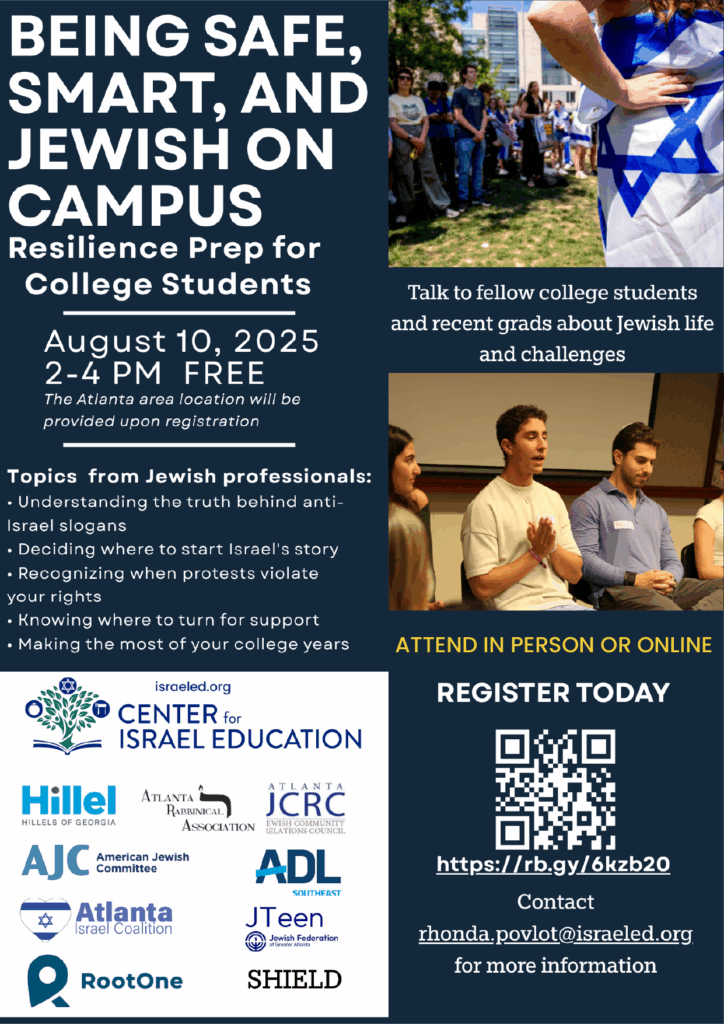Updated August 11, 2025, with follow-up resources. CIE and partners including including Hillels of Georgia, American Jewish Committee, the Jewish Federation of Greater Atlanta’s JTeen initiative, the Anti-Defamation League, the Jewish Community Relations Council of...
Reliable resources for deeper Israel understanding
Embrace informed content on Israel, the Middle East and the Diaspora.
Begin with 7 days free to explore CIE’s rich sources, expert analyses and guided knowledge building.
$39 / year
JOIN CIE+
Already have a CIE+ account?
SIGN IN









